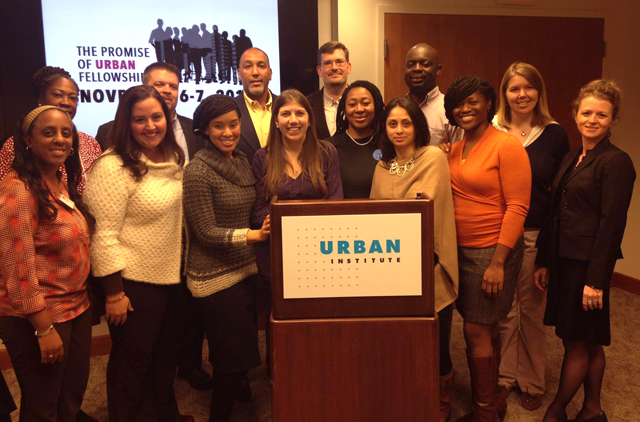
Urban fellowships foster leaders to move cities forward
Photo courtesy of the Detroit Revitalization Fellows.
This month, I attended a symposium convened by the Metropolitan Institute at Virginia Tech on “The Promise of Urban Fellowships.” The symposium gathered representatives of the federal government’s Strong Cities, Strong Communities fellowship program, the Detroit Revitalization Fellows, the Capital City Fellows Program and the (now completed) CUREx program to consider whether national convenings of similar programs might be valuable for sharing best practices, mutual learning and support. Knight Foundation is interested in the learning we might glean from these programs and I, as someone who has been a supporter of the Detroit Revitalization Fellows since the program’s inception, was interested to see how Detroit would compare to others.
What types of fellowships were we talking about? Here are some common features. They:
- Allow fellows to serve host employers full time
- Build or strengthen a network of fellows and host organizations
- Develop leadership skills
- Focus on mid-career individuals
- Focus on a specific issue, practice area or place
- Gather fellows as a mutually supportive cohort
Sitting in a room with more than two dozen current and past fellows from the various programs affirmed the title of the symposium; there is great promise among these leaders. I walked away reminded that these programs can be powerful – not just for the places they serve but for the individuals who participate.
In Detroit, there is a need for growing a solid bench of capable and imaginative mid-level professionals who have the potential to lead. What pleases me about these programs is the dual benefit: The city benefits from increased capacity and leadership for our activities and the fellows benefit from the experience itself. As Detroit prepares to recruit a third cohort of Detroit Revitalization Fellows I captured this list responding to the question “Why participate in a fellowship?”
- To learn
- To access leaders, role models and similarly motivated colleagues
- To network
- To contribute
- To be an empowered leader
- To complete an innovative new project or take an innovative approach to an old problem
- To connect places in need with the right people
- To serve a passion
- To take a risk
- To be with others who share your drive for improving urban places
- To bring new perspectives
The symposium demonstrated that there are many programs like this across the nation. This convening was just the beginning of identifying that network.
If you’re interested in learning more about the upcoming recruitment of Detroit Revitalization Fellows (Term of August 2015-July 2017), you can follow them on Facebook or Twitter or visit the website.
Katy Locker is Detroit program director at Knight Foundation.
Recent Content
-
Communitiesarticle ·
-
Communitiesarticle ·
-
Communitiesarticle ·


